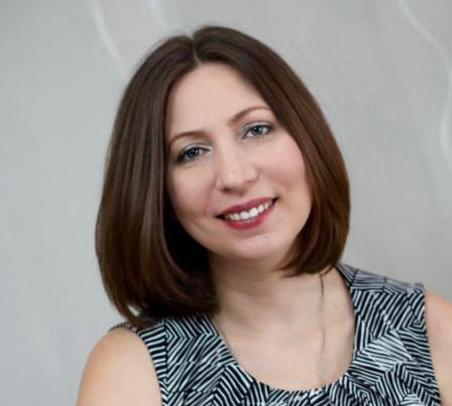Dr. Olga Bespalova is an Economist at the International Monetary Fund, where she currently works on Latin America and the Caribbean economies. She covers real, monetary, financial, and external sectors, focusing on estimating and forecasting models, analysis of the macro-financial linkages, and formulating policy recommendations.
How did you become a forecaster?
Having loved math from an early age, I focused my graduate studies on quantitative methods in Economics. A Master’s in Economics and a graduate certificate in Applied Statistics from Kansas State University gave me a solid background and a competitive edge to enter a fully funded Ph.D. in Economics at George Washington University (GW). I specialized in Econometrics with Prof. Phillips and learned Econometric Modelling and Forecasting with Prof. Niel Ericsson. Once I passed the Econometrics field exam with distinction, I joined the GW Research Program on Forecasting, which at the time was influenced by the (now late) Professors Herman Stekler and Fred Joutz. Inspired by them, I became passionate about forecasting, actively attending the GW Forecasting seminars and participating in the Federal Forecasters’ Consortium, Dynamic Econometrics (OxMetrics), and International Symposium on Forecasting conferences. Herman Stekler became my mentor and encouraged my dissertation topic – Essays on Forecast Evaluation in Macroeconomics and International Finance, and co-chaired it with Prof. Robert Phillips. Professors Fred Joutz, Michael Bradley, and Tara Sinclair – have impacted my research through service on my Ph.D. committee. I am grateful to them all for their help in shaping me as a professional forecaster. I continue maintaining my ties with the GW as a member of its H.O. Stekler Research Program on Forecasting. As an IMF Economist now, I regularly produce and evaluate forecasts for the World Economic Outlook and educate internal discussions about the stance of the macroeconomy and the appropriateness and timeliness of the policy recommendations.
What areas of forecasting interest you?
My primary interest is in forecasting applications to macroeconomics and international finance. In my dissertation, I focused on predicting macroeconomic indicators and currency crises, evaluating directional forecasts, and the value of textual analysis of the FOMC statements for eliciting unpublished Greenbook forecasts, which contained information unavailable to the SPF respondents. At the IMF, I produce estimates for economic growth, potential output, inflation, unemployment, monetary aggregates, and other indicators. I have also developed techniques to forecast economic activity in the sectors critical for a specific country: for example, for Panama, I focused on models to predict the tonnage and revenue of the Canal, and for Aruba – on international tourism arrivals to Aruba. I am also interested in the nexus of energy and macroeconomy, and macro-financial linkages.
How has the International Journal of Forecasting influenced you?
I have been a loyal IIF member since January 2015. The IIF positively impacted my professional development in a plethora of ways. I joined as a Ph.D. student and was grateful to receive a student rate for membership dues and conference fees. Soon after joining the IIF, in June 2015, I was invited to present my dissertation chapter at the 35th International Symposium on Forecasting (ISF), held in Riverside, CA. During the Symposium, I met dozens of forecasters from academia and industry, who helped me by providing feedback on my presentation and other research ideas and became role models of successful, productive, and well-published forecasters. Second, I regularly read the IIF publications – the International Journal of Forecasting (IJF) and Foresight, learning about new forecasting techniques and practices. The prestige and impact of the IJF inspired me to submit my paper – “GDP forecasts: Informational asymmetry of the SPF and FOMC minutes” – to it too. Having it published in 2020 has positively impacted my annual performance review and was essential to securing tenure at the IMF. Finally, the IIF gave me numerous networking opportunities, including attending the ISF sessions virtually during the pandemic. I look forward to more engagement with the IIF community through research, presentations, and other initiatives.
What do you do in your free time?
I like to stay physically active, intellectually challenged, and aesthetically impressed. I enjoy working out in a gym, swimming in a pool, and playing badminton. My morning treat is solving sudoku, and my daily challenge includes learning something new in Spanish or French. Finally, I love performing and visual arts – theaters, operas, shows, and exhibits help me to relax and recharge. When traveling, either for work or pleasure, I like to learn about different cultures, try authentic food, and enjoy nature.


